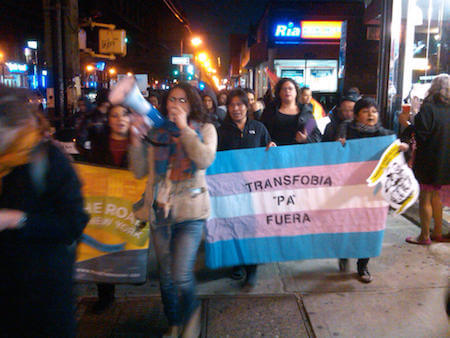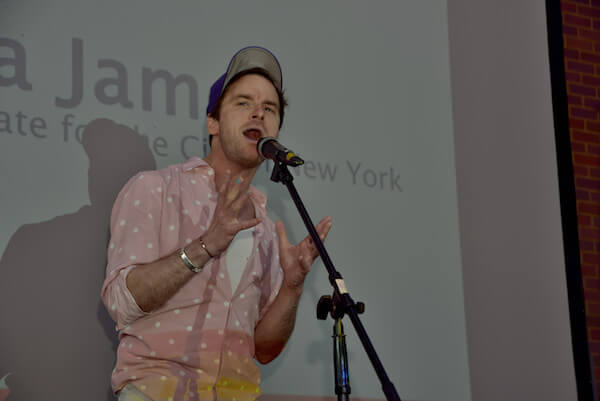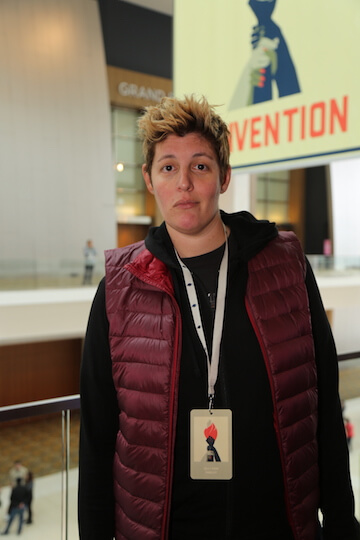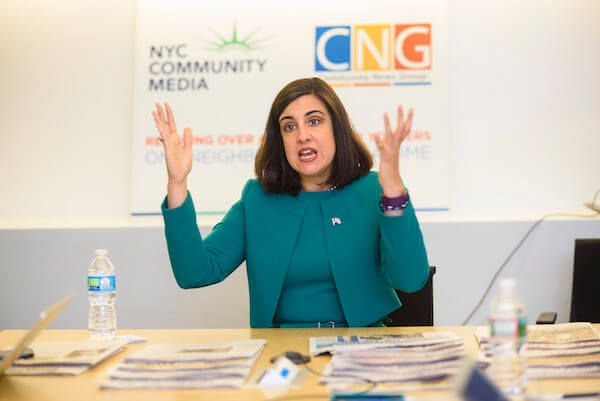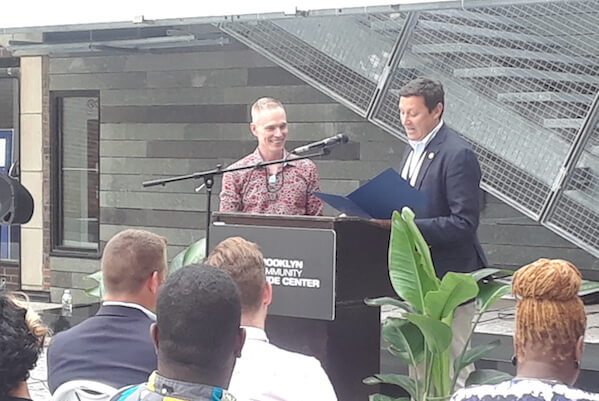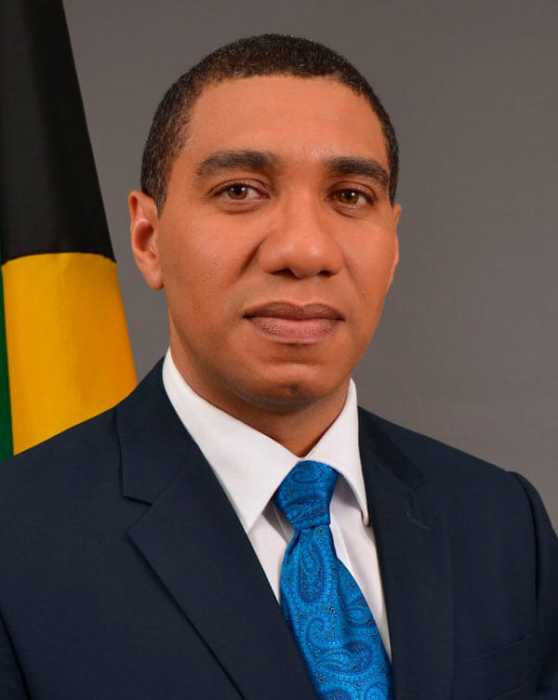BY ANDY HUMM | The brutal beating of a transgender Latina, Kathy Perez, 35, outside her Jackson Heights home in the early morning hours of November 29 sparked an impassioned rally by transgender women and their allies led by Make the Road, a social justice organization, on the evening of December 3. The crowd swelled to almost 100 as it wound its way for two hours through the diverse neighborhood — with its reputation as being LGBT-welcoming — that was shaken by the brutal attack.
Perez was left unconscious at the scene of her attack, and by the time activists gathered four days later, a report of a neighborhood sexual assault by multiple assailants on a 23-year-old gay man the day after the Perez attack was circulating, though details of that incident remain sketchy.
Outrage at the attack on Perez was heightened by reports of a statement from the NYPD’s chief of detectives, Robert K. Boyce, that based on witness accounts the assault was not a hate crime but rather “domestic violence.” Friends of Perez who spoke to her when she regained consciousness in Elmhurst Hospital said she told them she did not know her attacker — and obviously could not have told the police anything about her relationship with her attacker before the moment she spoke to the friends.
Friends, advocates question how police could conclude attack was “domestic violence”
Jennifer Lopez of Everything Transgender in NYC, who was with Perez when she woke up, said, “Thank God this tragedy was not another murder,” recalling how a similar attack killed Islan Nettles, a transgender woman, in Harlem in 2013. “But why is the NYPD calling this domestic violence? They do not want to do their job correctly.”
“Let’s not forget the 22 trans sisters slaughtered this year,” said Bianey Garcia, the lead organizer from Make the Road, “17 of whom were African-American.”
Perez was attacked as she tried to enter her home on 93rd Street near 37th Place at around 4 a.m. The assailant reportedly dragged her to the street and bashed her head into the curb until she lost consciousness. Neighbors who heard the disturbance yelled for the attacker to stop and shouted that police had been summoned.
Early reports by police and media on the assault misidentified the survivor of the attack as “he” and “a cross-dresser,” angering transgender advocates and out gay City Councilmember Daniel Dromm, who said, “The police need to learn the correct language when they speak on transgender issues.”
Police have offered a $2,500 reward for information leading to the apprehension of the suspect whom they describe at a Latino male in his 30s, 5’8” and 200 pounds. Witnesses or anyone else with information should call 800-577-8477.
In a neighborhood that boasts the largest LGBT community outside of Manhattan and plays host to a mammoth LGBT Pride march each year, the attacks have come as a shock — though transgender women there and elsewhere in the city have long complained of regular harassment, including from police, and a lack of access to jobs and health care.
Political leaders were on hand at the rally to decry the violence.
“We need to come together and send a message that it won’t be tolerated,” said State Senator José Peralta. “If you see something happening like this, get involved.”
Public Advocate Letitia James told the crowd, “We must bring Kathy’s attacker to justice. No more transphobia! Our city belongs to all New Yorkers!”
State Assemblymember Michael DenDekker said, “We must do our best to educate people and stop the hate.”
Carmelyn Malalis, the out lesbian chair of the City Human Rights Commission, said that “there’s a lot of education that needs to be done” and encouraged the reporting of anti-LGBT discrimination to the commission.
Large scale public education campaigns to reduce homophobia and transphobia are rare in New York and while the schools have an anti-bullying campaign, education about LGBT people and history is almost non-existent. Dromm, who represents most of Jackson Heights — though the assault took place in Julissa Ferreras-Copeland’s district — did manage, as chair of the Education Committee, to secure $200,000 in funding this year to examine how LGBT issues could be better integrated into curricula.
Alan Reiff, co-coordinator of Queens Pride, was passionate in pointing out that the group’s annual June parade and festival were sparked by the anti-gay murder of Julio Rivera 25 years ago.
“Twenty-five years later, we’re still here,” Reiff said. “All LGBT people must come together and support the transgender community.”

